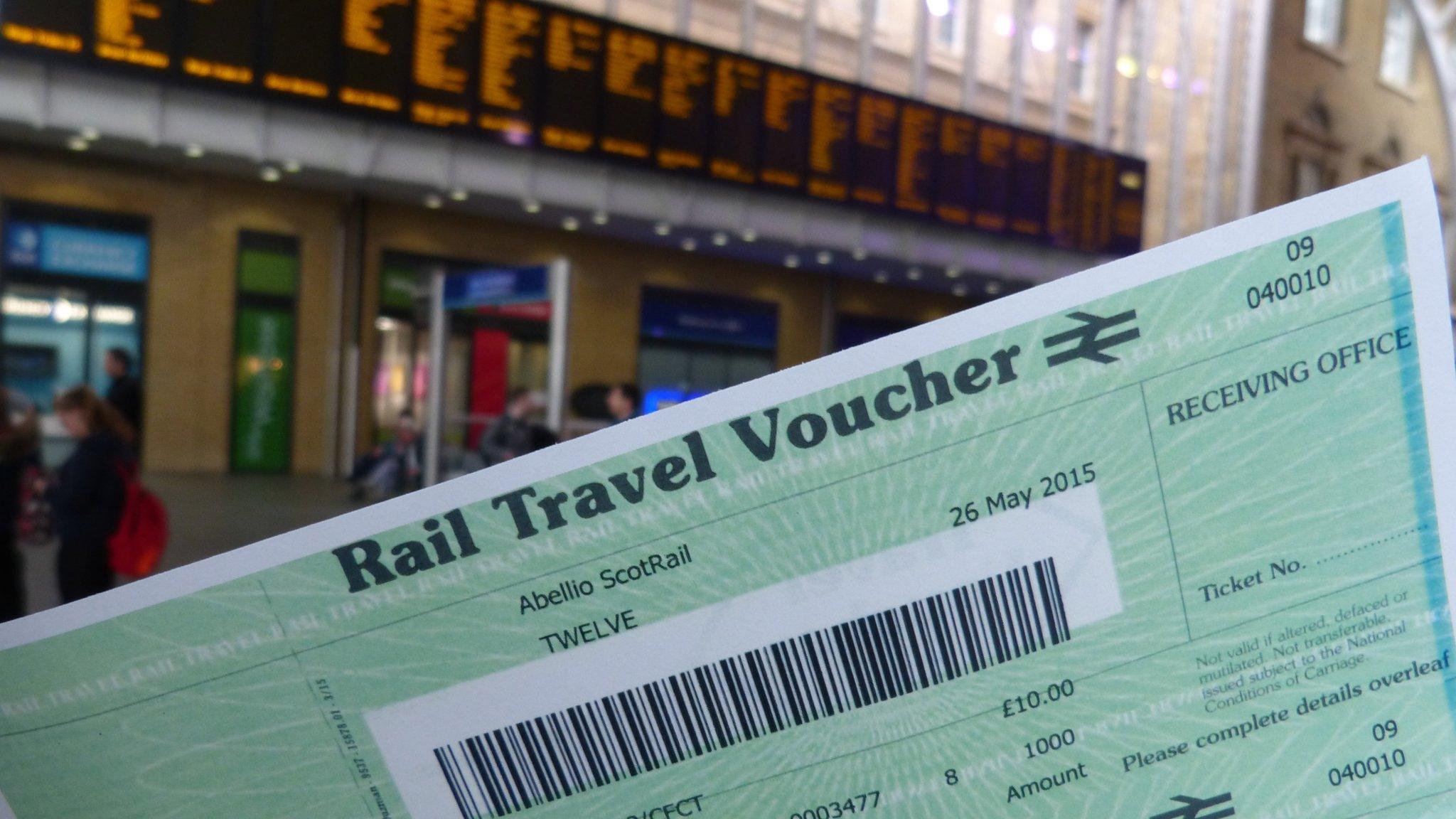Train delay refunds: Which? files super-complaint
- Published
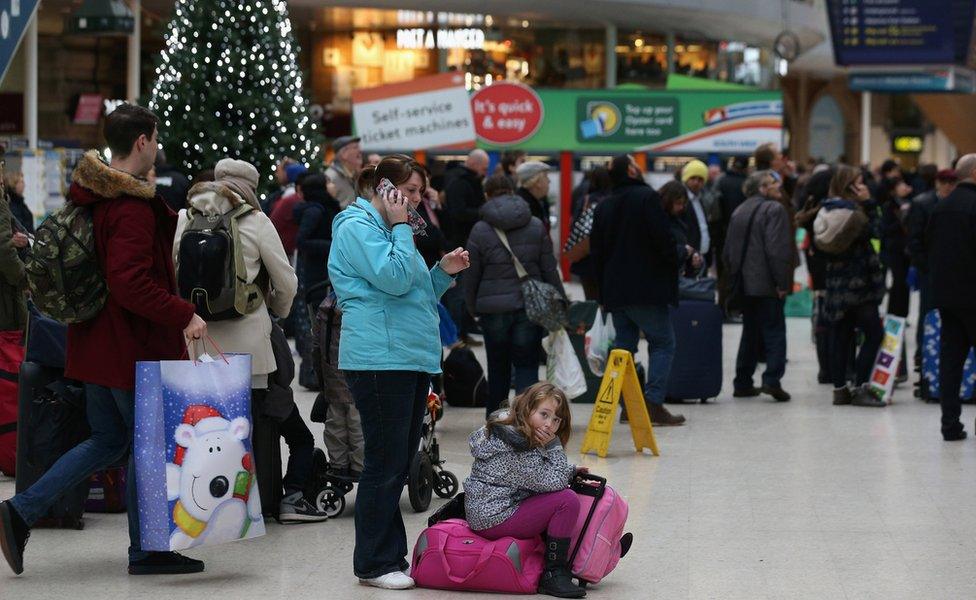
Train companies are making it too difficult for delayed rail passengers to receive compensation, consumer group Which? has argued.
It is making a so-called super-complaint to the railway regulator, the Office of Rail and Road (ORR).
Which? said that as many as 47 million journeys a year end in cancellation or delay, and it should be easier for passengers to get their money back.
The ORR said it was already working to improve the situation.
Under the super-complaint rules, the ORR now has 90 days to respond and to announce whether it will take action.
"Millions of passengers are left out of pocket each year, so train companies must do more to put their passengers first and make rail refunds easier," said Richard Lloyd, executive director of Which?.
Response
After questioning 7,000 passengers, Which? said only a third of people who may have been entitled to compensation actually bothered to claim it.
A similar survey by the passenger group Transport Focus in 2013 found that 88% of affected travellers did not claim.
In response, the ORR said it had already introduced a new code of conduct, external, to make buying a ticket more transparent.
But it admitted that passenger awareness of compensation was low. And it said it would be examining the complaint carefully.
"We will be assessing whether more could and should be done for passengers as we investigate this complaint," said an ORR spokesperson.

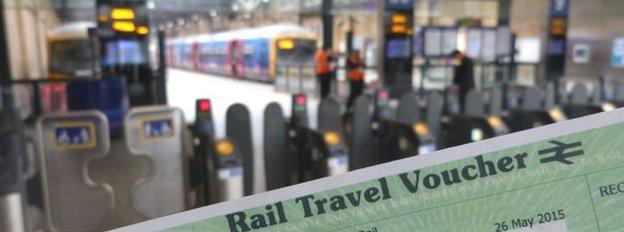
Analysis: Richard Westcott, BBC transport correspondent
Some 47 million train journeys were so late last year that passengers were entitled to a refund. Yet Which? says most got nothing.
There have been some recent improvements. In 2007 they introduced something called "delay-repay" into new franchises, which means customers travelling with those companies get a better deal.
Yet Which? says 35% of franchises still work to the old rules, which offer less money and might not pay out for things like storms. It'll be another 10 years before everyone is on the new deal.
Last summer, train firms began offering money back instead of ticket vouchers, although you do have to ask for it.
There's been a rise in people asking for, and getting money back for a bad journey in the past year.
But there's a long, long way to go. Even many of the station staff Which? asked didn't seem to know the refund rules. If they don't know, what chance have we got?
Follow Richard on Twitter: @BBCwestcott

Automatic compensation
Since July this year, passengers have also been able to claim compensation in cash, rather than receiving vouchers against future travel.
But Which? wants customers to be told - for example, by a public announcement on the train - that they are entitled to get some money back.
Compensation forms should also be handed out on the platform, it said.
Just over half the country's train operators offer compensation after a 30-minute delay, under what is known as the Delay Repay scheme.
New operators now have to sign up to Delay Repay, as a condition of their franchises.
But older franchisees only offer compensation after delays of an hour.
In the Autumn Statement, Chancellor George Osborne suggested the 30-minute trigger for delays might even be reduced to 15 minutes.
In October, Virgin Trains became the first operator to offer automatic refunds to delayed passengers. The newly-awarded Northern and TransPennine franchises will also offer automatic refunds.
Next year the Essex-based C2C service will offer automatic refunds to registered passengers, after delays of as little as two minutes.
- Published18 March 2016
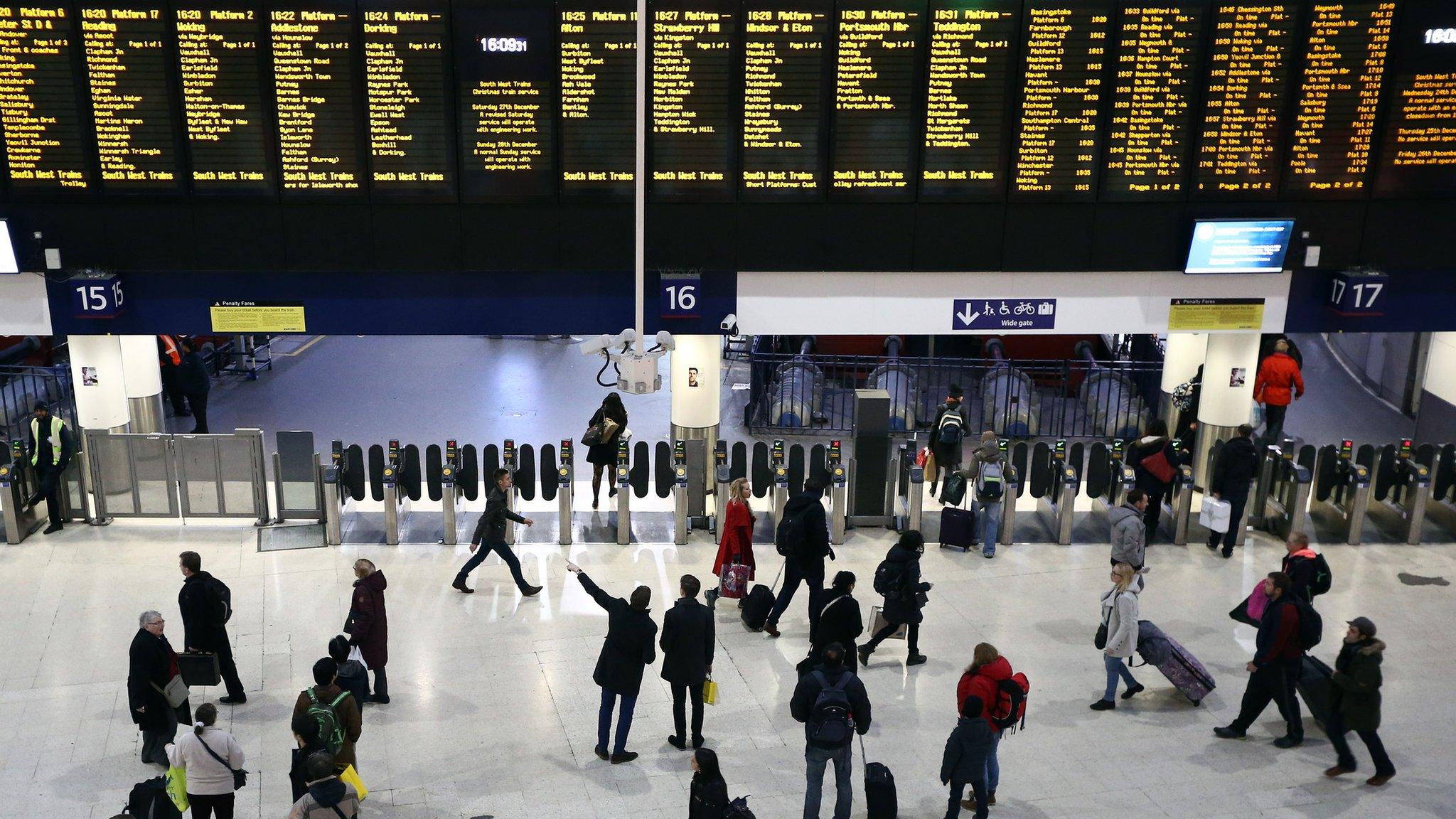
- Published19 July 2015
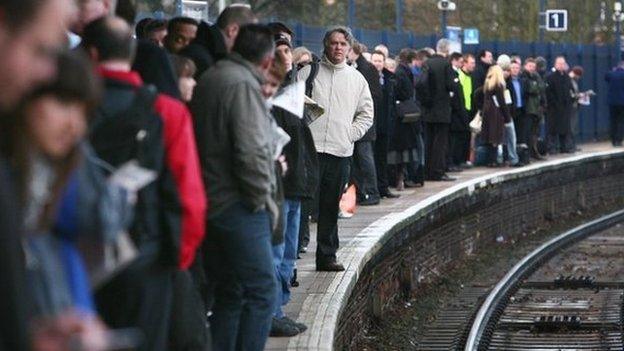
- Published6 June 2015
